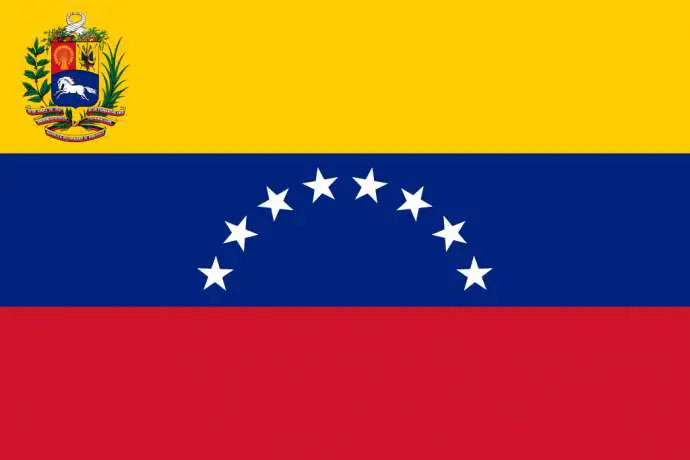STA, 6 February 2019 - As the government is about to decide whether to follow in the footsteps of several other EU countries by recognising Juan Guaido as Venezuela's interim president, the coalition are divided on the issue with the Social Democrats (SD) and Pensioners' Party (DeSUS) arguing parliament should be consulted first.
Before taking any unilateral action which would mean assuming responsibility under international law, the government should discuss it with parliament, Milan Brglez, an MP for the SD and former speaker of parliament, told reporters on Wednesday.
He believes that Slovenian legislation is clear and that the National Assembly needs to take a decision on the matter, while he said that it would be very unpleasant if it had to discuss the matter subsequently.
He expressed concern about the hardship of the people of Venezuela, including Slovenians living there, who he said should be taken care of by the Foreign Ministry as a matter of priority.
Considering Venezuela's constitutional categories, a president's self-declaration could not have happened. "If this held true in Catalonia and Spain, I don't know why it wouldn't in such a case," said Brglez.
If in Catalonia's case "the constitutional constraints were those which wouldn't warrant direct application of international law over self-determination, I cannot see why it would be different this time around and why we would apply double standards in our foreign policy".
DeSUS leader Karl Erjavec, the former foreign minister now serving as defence minister, told the STA that the situation was a highly delicate one.
He believes that Foreign Minister Miro Cerar's proposal for Slovenia to recognise Guaido as interim president should be debated by the parliamentary Foreign Policy Committee before the government took its decision.
Like Brglez, he warned that such decisions by the international community could have grave consequences for Venezuela and there was a serious risk of a civil war.
Erjavec believes that the solution for Venezuela is to hold an early democratic election. Whether Guiado's recognition could lead to such an election is in his view a very complicated question, but he said that it increased the danger of internal unrest.
Erjavec also noted that there was a very thin line as to whether recognising the interim president was interference in Venezuela's internal affairs. He believes that international organisations should exert pressure in order to have the country hold an early election.
Asked about whether the decision on recognising Guaido should be taken by the government or parliament, the Modern Centre Party (SMC) of Foreign Minister Cerar noted that in 2011 the government recognised the National Transitional Council as the legitimate representative of Libya's people and in 2013 the government recognised the Syrian national coalition in the same way.
"We trust that the government will dedicate due attention to the matter and justify its decision. The important thing is that Slovenia stands by a position that is clear and right: that a free and democratic election should be held as soon as possible," the party stated on its website.
The LMŠ party of Prime Minister Marjan Šarec would not comment on the matter officially but unofficial information indicates that there is coordinated communication on the issue between the Foreign Ministry and Šarec's office.
The Foreign Ministry will brief the government on the situation in Venezuela on Thursday and the LMŠ will take steps based on the discussion.
The Left, the minority government's partner in the opposition, is strongly opposed to recognising Guaido with the party's MP Miha Kordiš saying the question of recognition "is the question of whether we'll break international law" and indicating it could impact on the Left's cooperation with the government.
"Guaido is a self-styled American appointee; as Slovenia we certainly cannot benevolently recognise someone who declared himself as one," Kordiš said, adding that Emmanuel Macron's presidency in France could be called into question because of the gilets jaunes.
The opposition Democratic Party (SDS) and New Slovenia (NSi) support recognising Guaido with NSi MP Jernej Vrtovec commenting that the recognition must lead to a democratic process starting with a writ of a snap presidential election.
He believes that the government can take the decision on the matter itself but that the parliamentary Foreign Policy Committee should also discuss the issue.
SDS MP Žan Mahnič said the party favoured an earliest possible recognition of Guaido as an interim president and a snap election. He said it was up to the government whether the issue would be discussed by the Foreign Policy Committee but he did deem every discussion on the issue useful.






